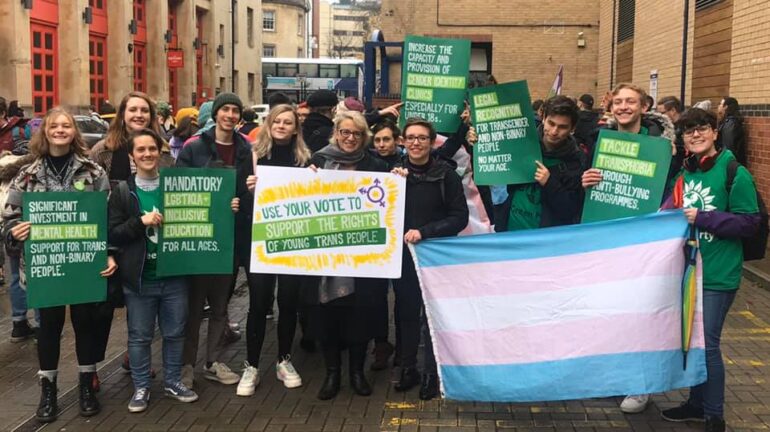Feminists shouldn't have to strip off to get in the Guardian
It’s not often you have a controlled experiment in analysing media content. Each story only happens once, so it’s nearly impossible to say that it wouldn’t have been reported, or it wouldn’t have been reported in the same way if it didn’t play to an oppressive trope, or include a popular but problematic element.
The case of a popular story in the Guardian on Saturday is a clear exception to that. It runs almost exactly the same story as was pitched to them two weeks ago, with one addition: breasts.
In the run up to the UK Feminista Summer School, which was just over a week ago in Bristol, the staff there pitched to various papers that this was a camp, training women and men to take action – including direct action – for a feminist future. They talked about international feminist solidarity that would be displayed at the school, and about the growing movement which would be trained there. Now, UK Feminista are very good at getting in the papers, and have in the past secured front page splashes in the Guardian. So we can assume that the pitch was pretty good.

But none of the UK papers ran the story (the New York Times and Le Monde did). As a friend at one broadsheet said to me afterwards, she had pitched it to her editors twice, but there wasn’t much news there. Fair enough – it’s often hard to find an angle for what is essentially an annual conference.
Well, fair enough that is until this week. You see, it turns out that Femen, a feminist organisation in France, are arranging similar training for feminists… With one difference: theirs will include training in the use of nudity in protest. And so the story provided the Guardian with the perfect opportunity to splash a photo of a topless woman – a topless woman who is, I am sure coincidentally, young and conventionally beautiful.
Now, I am not going to criticise these activists for stripping off. I am not convinced that it helps the cause, but it is clearly an effective way to get media attention for causes which I agree with them are serious ones.
But do the Guardian really think it’s ok to run the story purely because it provides an opportunity to print pictures of breasts? And to write about breasts? If they wanted to write about the growing feminist movement and the increasing amount of training there is in feminist direct action, they had a perfectly good opportunity to do so – with an event in the same country as most of their readers – a week ago. Or if the Femen camp is for some reason particularly significant, and I can believe that it is, perhaps tell us why? Perhaps there is something of political significance here other than the nakedness of the women involved – and the fact that they are ‘tall’ and ‘beautiful’?
But no, it seems that the Guardian is swayed by the opportunity to replicate the Sun. The women in the article say that they started stripping because they found it was the only way to get attention. It seems that this applies to the Guardian as much as to the rest of society…



The Guardian, society, and strippers seem to like attention. Hmm…
@pat – check the year…
Actually the Guardian did report on the UKF camp last year:
http://www.guardian.co.uk/world/2011/aug/14/feminism-summer-school-uk-feminista
See also:
http://www.guardian.co.uk/world/2011/aug/05/feminism-resurgent-activists
“But do the Guardian really think it’s ok to run the story purely because it provides an opportunity to print pictures of breasts?”
That’s rhetorical question, right?
Marks and Spencer has the best-reported performance figures in the country. Why? Because every time you publish their pre-tax profits you can print a picture of a lingerie model in the business pages.